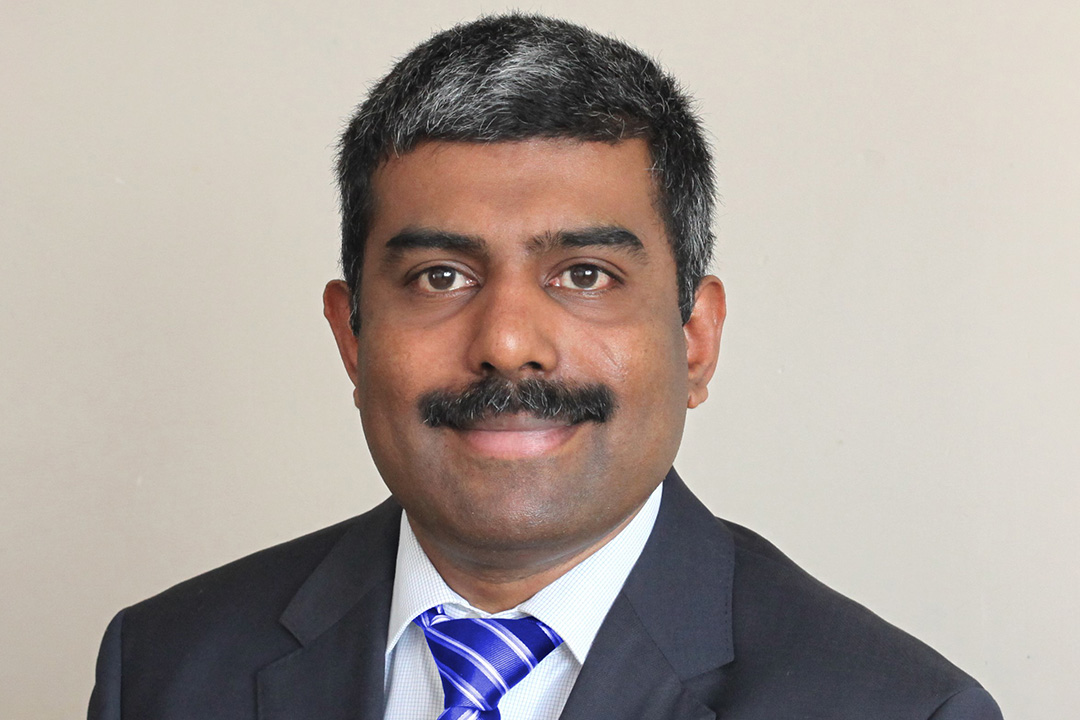
USask biomedical researcher investigating what makes COVID-19 variants more infectious
A University of Saskatchewan (USask) biomedical scientist is leading a research team in investigating how COVID-19 variants function and interact with a host’s cells.
By Kristen McEwen“When the new variants arose in SARS-CoV-2, we wanted to know what the molecular basis is for (the variants) being more transmissible and more infectious in people,” said Dr. Anil Kumar (PhD), an assistant professor in the Department of Biochemistry, Microbiology and Immunology in the College of Medicine.
Kumar recently received a $100,000 grant from the Canadian institutes of Health Research (CIHR) for his project, Functional analyses of pathogenicity determinants of emerging SARS-Coronavirus-2 variants.
With predominantly four main variants currently circulating around the world—Alpha, Beta, Gamma and Delta—and new variant of concern Omicron spreading quickly, Kumar and his team are studying specific mutations in the genome of the variants. These mutations cause the variants to be more contagious and infectious.
“Our study will determine the critical mutations in the variants that increase their fitness to spread more efficiently in human population. Once the key mutations in viral proteins that make the variants more infectious and transmissible are identified, we will ask the question, ‘How exactly do (the mutations) modulate the way the virus interact with the host cell?” Kumar said.
Another major focus of Kumar’s group currently is to determine how different host cells pathways contribute to the successful replication of SARS-Coronavirus-2.
“When viruses enter the body, they don’t bring in a lot of their own genes,” Kumar said. “They extensively exploit host cell proteins for replication and effectively suppress or neutralize the cellular defence proteins. The severity of the disease depends on the dynamics of the interactions between the host cell proteins and the virus proteins.”
By understanding the ways the virus interact with human cells, better therapeutic strategies can be developed against the variants, Kumar explained.
“We can target cellular proteins that are essential for the virus to replicate,” Kumar said. “Basically we’re trying to understand which proteins are the most essential ones, and play a critical role in helping the virus to replicate in the cells.”
“These proteins could be developed as novel targets for drug treatment,” he added.
Drugs targeting cellular proteins are extensively used in cancer treatment. A similar strategy could be used to treat the coronavirus variants, he said.
Kumar and his team will be conducting the research at the Vaccine and Infectious Disease Organization at USask, an advanced containment Level 3 facility.
This research project has also provided Kumar an opportunity to continue collaboration with his former mentor Dr. Tom C. Hobman (PhD), a professor in the Department of Cell Biology at the University of Alberta (U of A). As a relatively new researcher, this was Kumar’s first time as a principle investigator.
Kumar reflected on his experience in studying viruses as a post-doctoral fellow at the U of A. He studied the biology of the Zika virus as it became a pandemic in 2015.
“When new viruses evolve and spread, there are a lot of unknowns. Rapid progress in understanding of the virus biology is critical to develop effective treatment strategies,” Kumar said.
“The questions we work on are highly relevant from a public health perspective, and on the course of evolution of novel variants. I’m very lucky to be in a place where I can actually address these interesting questions,” he added.

